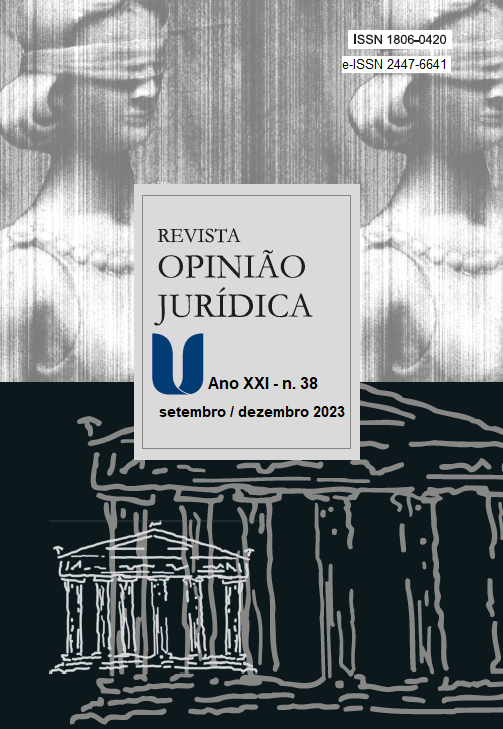THE INCOHERENCIES WITHIN THE PRECEDENT SYSTEM OF THE BRAZILIAN SUPREME COURT: AN ANALYSIS OF THE ADPF 402 AND THE CRIMINAL SUIT 4070
DOI:
https://doi.org/10.12662/2447-6641oj.v21i38.p103-119.2023Keywords:
ADPF 402, criminal action 4070, Supreme Court, precedents, coherenceAbstract
Background: The system of precedents in Brazil was established with the advent of the Code of Civil Procedure of 2015, binding the courts to the theses established by the competent courts. However, mere positivization does not generate efficacy, requiring certain behaviors for the sake of standardization of law. However, even though it adopts certain precedents, the Federal Supreme Court shows preference for monocratic decisions over effective debate by the Court, which generates inconsistency in the creation and application of binding precedents. The present article studies two eminently political cases: ADPF 402 and Criminal Action 4070, which had as subjects the former President of the Chamber of Deputies, Eduardo Cunha, and the former President of the Federal Senate, Renan Calheiros.
Objective: To demonstrate the inconsistencies of the Federal Supreme Court in the creation and application of precedents.
Method: We prioritized the hypothetical-deductive method and the case study of ADPF 402 and the Criminal Action 4070.
Results: The article shows that, as a rule, there is no effective collegial deliberation able to demonstrate the ratio decidendi in the decisions of the Federal Supreme Court and that the absence of full collegial deliberation makes it impossible to generate precedents that result from the understanding of the Court on the subject, which can lead to institutional instability when the decisions rendered have a high political impact on the other Powers.
Conclusions: The Supreme Federal Court tends not to use binding judicial precedents as a limiting factor for its political actions, and as a rule is not concerned with keeping its jurisprudence stable, integral and coherent.
Published
How to Cite
Issue
Section
License
Copyright (c) 2023 Revista Opinião Jurídica (Fortaleza)

This work is licensed under a Creative Commons Attribution-NonCommercial-ShareAlike 4.0 International License.
CESSION OF COPYRIGHTS
The submission of articles to analysis for publication on Opinião Jurídica implies the author(s) transfers copyrights to Centro Universitário Christus – UNICHRISTUS for reproduction, publicizing, distribution, printing and publication, according to the Publication Norm 414R, Opin. Jur., Fortaleza, year 12, n. 16, p.1-414, Jan./Dec. 2014, costs to be bore by UNICHRISTUS, in whatever format or means that may or shall exist, in accordance to articles 49 and following of Federal Law 9.610/98.
1. In ceding copyrights, the author(s) agrees to do so in exclusivity, free of charge and for the totality of the work.
2. UNICHRISTUS may make the work, in its entirety or in parts, available for scholarly purposes, without altering its contents, except for small corrections that are deemed necessary.
3. The cession of copyrights is valid in all countries and for versions of the material in its original language or translated into a foreign language.
RESPONSIBILITY FOR THE CONTENT
By submitting an article, the author(s) declare to have sole responsibility for the content of the piece and is(are), therefore, responsible for any judicial or extrajudicial measures referring to it.
1. In case of joint authorship, all authors are considered collectively responsible, except when proved otherwise.



















